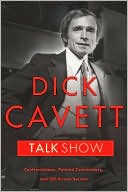Search in google:
In Bob Schieffer's own words, from the JFK assassination to the World Trade Center attacks, "I got to see most of it and came to know many of the major figures of those four decades because I am a reporter. I became a reporter because I always wanted to see things for myself and make my own judgments about them. Those events I covered have become part of our history and you already know most of them. But I want to tell you about the parts that didn't get on television or in the paper, the serious parts and the not-so-serious parts, the good times I had, and the presidents, senators, correspondents, big-time crooks, and small-time swindlers I came to know. Here are the stories I tell my friends, and they are the stories I want to share with you." Schieffer is not only broadcast journalism's most experienced Washington reporter, but one of its best natural writers. This Just In is filled with great behind-the-scenes tales and surprising scoops based on dozens of brand-new-and sometimes startling-interviews. Smart, witty, and insightful, these are the stories you'll want to share with your friends. Author Biography: Bob Schieffer has been at CBS News since 1969, where he is one of the very few correspondents to have covered all four major Washington beats: the White House, Pentagon, State Department, and Capitol Hill. He is now CBS's chief Washington correspondent, and anchor and moderator of Face the Nation. Publishers Weekly It might not have occurred to anyone to clamor for longtime CBS reporter Schieffer's memoir, but now that it's in print, it makes for a highly engaging read. He's seen it all and has much wisdom about journalism and governance to impart. The book spans virtually every important domestic story of the past 40-odd years; among his captivating subjects are the 1962 integration of the University of Alabama, JFK's assassination, Vietnam, Nixon-era peace protests and Watergate. The book's emphasis changes subtly from events to personalities when Schieffer takes over Face the Nation. As the subtitle suggests, Schieffer wisely forgoes rehashing familiar tales like Watergate or the Clinton-Lewinsky scandal in favor of revealing the background action that went unreported at the time. He structures the book as a collection of anecdotes, and, unsurprisingly for such a seasoned pro, Schieffer has a sharp eye for intriguing details and an instinct for maintaining the proper focus on his subjects rather than on himself. When he does get personal, he admirably questions his occasional missteps in balancing family and career. The telling is so unfussy, modest and straightforward that it rarely prompts speculation about the juicy bits that he couldn't write in a book. Indeed, the work succeeds not only as a primer on broadcast journalism but also as an informal history of America over the past 40 years.
1. Oswald's Mother, 1 2. The Johnson City Windmill, 13 3. Mississippi Burning, 23 4. The Night Beat, 35 5. Courthouse Days 47, 6. The Star-Telegram Goes to War, 56 7. "I Can't Never Tell What Happened to Me", 67 8. News at Six, 85 9. 1968, 97 10. Washington, 115 11. Nixon's War, 134 12. The Puzzle Palace, 146 13. The Devious Dove, 161 14. 1972: Control and Chaos, 175 15. The Last Serious Campaign, 184 16. The Nixon Endgame, 200 17. The Pardon, 217 18. Stumbling Along, 232 19. Jimmy, 245 20. The Morning Show: A Time out of Time, 260 21. It Was All Foreign to Me, 276 22. The New World Order: CBS in the 1980s, 291 23. Capitol Hill, 312 24. Sunday Services, 327 25. The Charmer, 346 26. Being Careful What You Wish For Is Still a Good Rule, 369 27. 9-11, 388 28. End Piece, 407 Chapter Work Notes, Sources, Afterthoughts and Observations, 410 Index, 425





